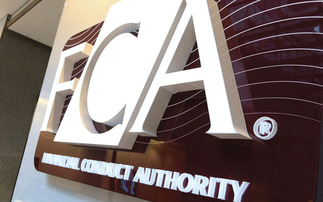The Financial Conduct Authority (FCA) has introduced a new approach to tackling serious failings in financial services firms by cracking down on senior level management first.
'Enhanced supervision' will see the regulator intervene more quickly when it detects "serious failings" such as a series of conduct failings, problems in more than one business area, or a poorly functioning board.
The new approach means it will be able to decide at any point - by using its "judgement rather than a formal process" - which measures are appropriate and what course of action it will take, it said in a statement out on Thursday.
Although developed in response to the Parliamentary Commission on Banking Standards' recommended 'special measures', the new approach applies to all firms, the FCA added.
It said in its paper: "Where we believe a firm presents serious risks to our objectives, [...] and we do not think that our usual supervisory approach will be sufficient to tackle those issues in a timely way, the firm will be made formally subject to Enhanced Supervision.
"Our enhanced approach is designed to tackle the most serious failings in standards, governance or culture within a firm. However, through the use of the enhanced approach, we seek to tackle the underlying failings at a
senior level in firms. Cultural change in the wider institution is likely to take much longer to happen."
Once the FCA has placed a firm under enhanced supervision, the regulator will typically ask the firm's board to formally commit to its laid out 'remediation measures'.
It may also ask the board to appoint an independent person to oversee the process.
In the end it will review how effective the firm was in implementing the 'remediation measures' before deciding whether it can go back to its normal operations, the FCA said.
However, if it believes the process was not effective enough, it will consider other tools and powers, such as placing requirements on the firm to take certain actions (OIREQ power), it added.
The FCA will still use its enforcement powers, however.
"It is important that regulators use judgement, rather than a set of consequential processes, to determine what regulatory tools and powers are appropriate.
"Enforcement investigations may therefore begin without a firm having been placed in Enhanced Supervision," it said.












